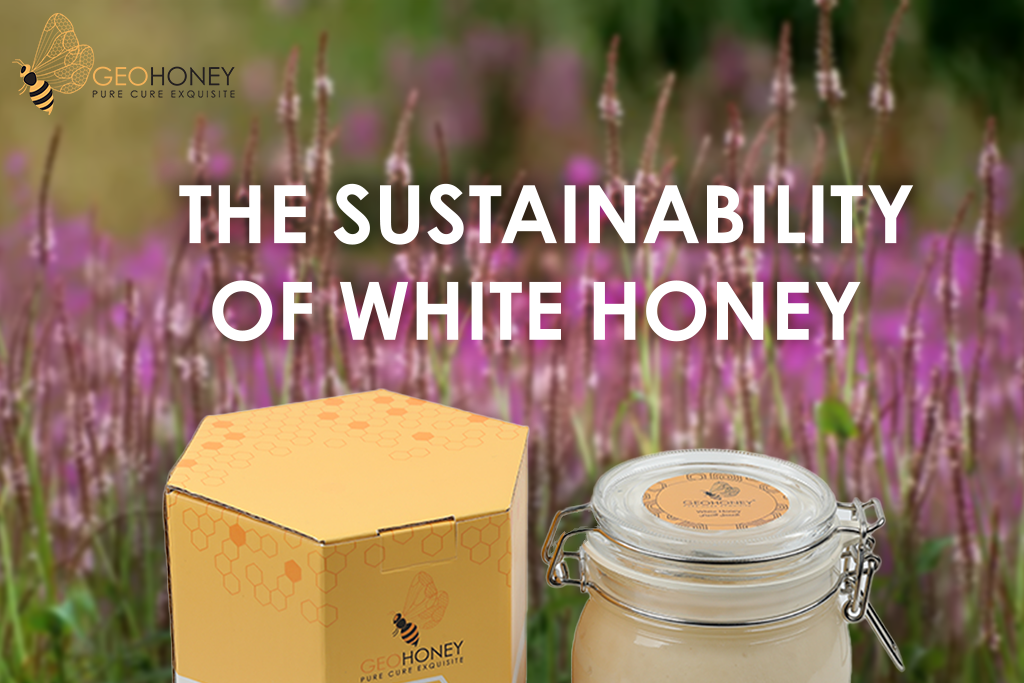- Tokyo: 02:07
- Singapore: 01:07
- Dubai: 21:07
- London: 17:07
- New York: 12:07
The sustainability of white honey: How it's produced and how it's beneficial to the environment

White honey, like all types of honey, is produced by honeybees pollinating plants and collecting nectar to bring back to the hive. The process of honey production is relatively sustainable, as it relies on the natural behavior of bees and the growth of plants. However, there are a few factors that can impact the sustainability of white honey production:
Pesticide use: The use of pesticides on plants can harm bees and reduce the number of pollinators available to produce honey. To ensure sustainable white honey production, it's important to use pesticides responsibly and avoid applying them during times when bees are actively foraging.
Habitat loss: The loss of natural habitats, such as wildflower meadows, can reduce the number of plants available for bees to pollinate and collect nectar from. To promote sustainable white honey production, it's important to protect and restore natural habitats.
Colony collapse disorder (CCD): CCD is a phenomenon where bees suddenly disappear from their hives, leaving behind only the queen and a few young bees. The cause of CCD is not fully understood, but it is thought to be related to a combination of factors such as pesticide exposure, disease, and habitat loss.
White honey is also beneficial to the environment in a number of ways, such as:
Pollination: Honeybees are important pollinators of many crops, including fruits and vegetables. By producing honey, bees help to pollinate plants and increase crop yields.
Habitat restoration: Many beekeepers use their hives to pollinate plants and restore habitats in areas where they have been destroyed.
Carbon sequestration: The growth of plants that produce nectar for bees to collect also helps to absorb carbon dioxide from the atmosphere, which can help to mitigate the effects of climate change.
Overall, while white honey production can be sustainable, it is important to consider the practices used to produce the honey and to take steps to protect bees and their habitats.
Organic and sustainable beekeeping practices: Many beekeepers are now adopting organic and sustainable methods to produce white honey. This includes using natural methods to control pests and diseases, avoiding the use of pesticides and chemicals, and providing bees with a healthy and diverse diet. By using these methods, beekeepers can promote the health and well-being of their bees, while also producing high-quality honey that is better for the environment.
Supporting local beekeepers:
Supporting fair trade honey: Fair trade certification ensures that beekeepers are paid a fair price for their honey, and that they are adhering to sustainable and ethical beekeeping practices. By supporting fair trade honey, consumers can help to promote sustainable white honey production around the world.
Supporting conservation efforts: Supporting organizations that work to protect bees and their habitats can also help to promote sustainable white honey production. This can include supporting conservation efforts, research on bees, and education programs that raise awareness about the importance of bees and the role they play in producing white honey.
Overall, sustainable white honey production requires a combination of responsible beekeeping practices, conservation efforts, and consumer support for sustainable honey production methods. By being mindful of these factors, consumers can help to promote sustainable white honey production and support the health of bees and their habitats.




And it is also one of the rarest honey. Very creamy and palatable.